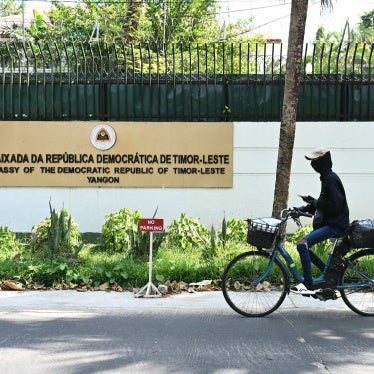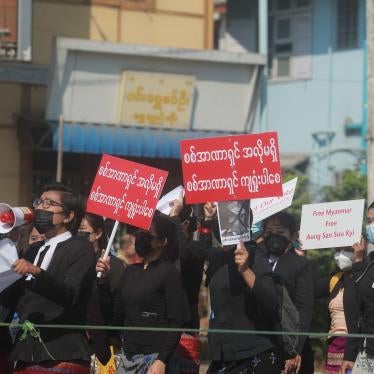With two days left in 2013, Burmese State Television made an unexpected announcement on the longstanding issue of political prisoners. President Thein Sein’s office had issued an order that provides a broad pardon for a host of crimes associated with political activity and directs authorities to drop the cases against those facing charges under such laws. The order could mean the release of all of Burma’s remaining political prisoners, including about 40 people who have been convicted and more than 200 others currently facing charges.
If the roughly 250 people covered by the order are released this week, Thein Sein will have come pretty close to fulfilling his pledge in July that all of Burma’s political prisoners would be free by the end of 2013. The day after his announcement, five prisoners were released, including Yan Naing Tun and Aung Min Oo, two peace activists who earlier in 2013 staged a march against the armed conflict in Kachin State.
The broad release order was long sought by Burmese activists, Human Rights Watch and foreign governments. While releases of prisoners since January 2012 seemed timed to assuage international pressure, typically announced on the eve of important diplomatic events, this action appears to reflect the government’s consultations with Burma’s political prisoner review committee, a body the government set up a year ago comprised of former political prisoners, rights activists and government officials. This is a sign of growing cooperation between government and civil society, buttressed by reports that the committee will continue its work in 2014 to review alleged political arrests and detentions.
Not all cases have been resolved. The government appears unwilling to release prominent ethnic Rohingya leaders Dr. Tun Aung and Kyaw Hla Aung, or three whistleblowers who leaked sensitive defense information in 2009.
The government deserves credit for the December 30 order – provided those who qualify are promptly released – but it’s also time to start tackling underlying issues such as criminal justice reform and scrapping laws used to quash peaceful protest. Pardons are good, but not having to issue them is even better.







